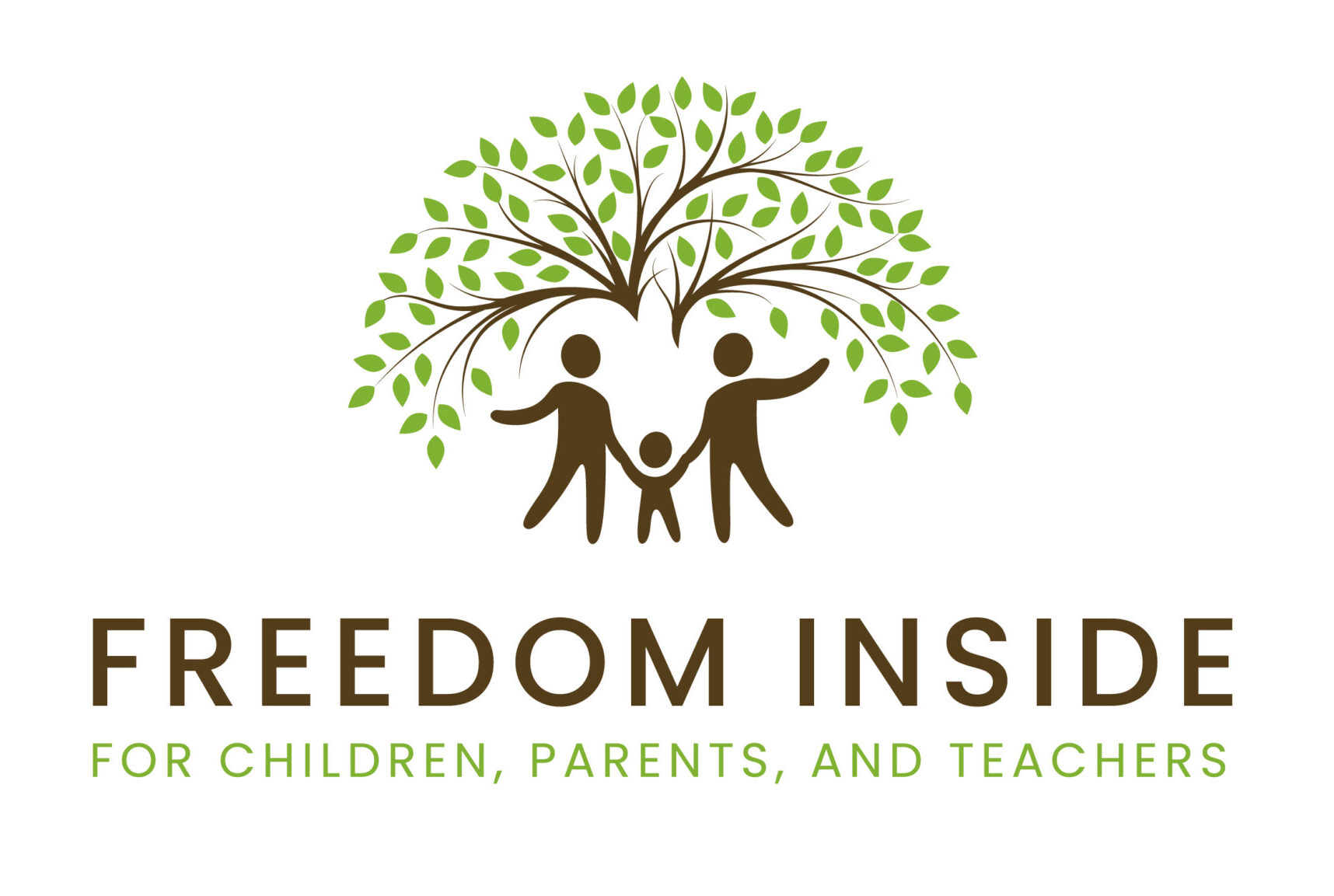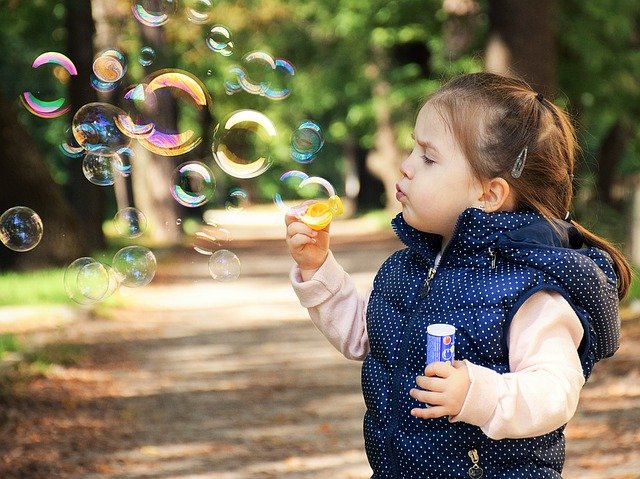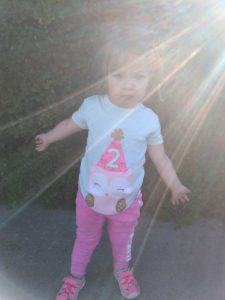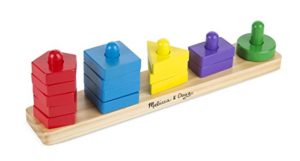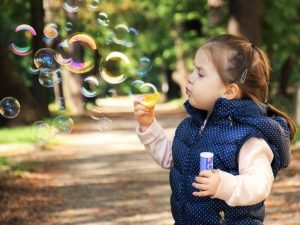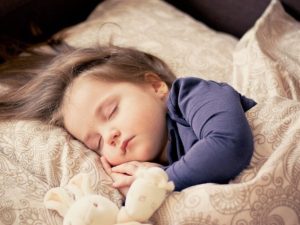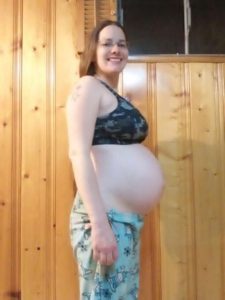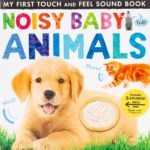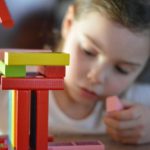Have I mentioned how important the first five years of life are? These first years define your child. There are struggles, learning for both you and your kiddo, and lots of growth. Sometimes you need help or support, and other times you just need some reassurance and guidance. This blog is to act as guide for those milestones from age 1-5. If you find your child isn’t meeting milestones, talk with your doctor to ensure they receive any support they might need.
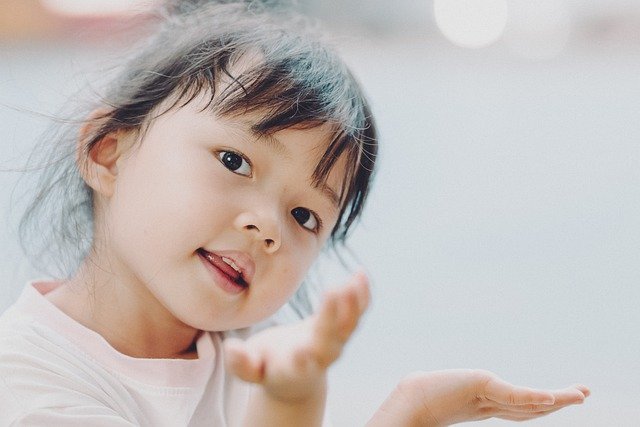
Development
You’ve seen how fast your little dumpling’s mind expands, grows, and learns. Sometimes it feels like we can’t keep up. There are a few things we can do to help our children develop, with only a very small amount of effort on our part. You can learn more about ways to help your child learn here.
Attachment
Don’t underestimate the value of a solid attachment. The more securely attached your child is, the better they will be able to learn. This is because they can spend all of their time learning and growing. They don’t have to be afraid for their safety, or worried about their basic needs. Make an effort to build a positive, healthy relationship with your child. You want to be the safe space for them.
Boundaries
Boundaries are a little different from rules. It’s the idea that, as a parent, you are holding a space for your child to grow and thrive in. It has to be large enough that they can grow, explore, and challenge themselves. It also needs to be small enough that they are kept safe and not put in any outright danger. Holding boundaries with your child can be challenging but also important. And your child is going to test those boundaries. They are going to see what buttons they can push, and where the edge of safe is. This is how they learn.
Room to Grow
On the outer most edges of the boundaries I mentioned above is your child’s need for room to grow. I’m not talking physically, and maybe not even mentally. Their need to grow independently (and you can read all about nurturing your two-year-old’s independence here). They need to be allowed to do things for themselves, make their own decisions, and pick their own fights. Let them have space to experiment with who they are. They may even try on a personality for a few weeks, and then find they don’t like it. Don’t decide anything permanent for them at this age (I think being shy is the most common one I hear). Give them lots of space to figure out who and how they want to be in this world.
Yeah, I know, I’m like a broken record. But reading to your child is huge. There is tons of research about academic success in children who are frequently read to in their early years. So find all the books, read everything you can. It’s all the better if you can find different ways to make it special, or more than routine.
Sing and Dance
Have you ever noticed that you can easily learn songs, often without even having to try? Well children’s songs are full of great learning bites. Sing with your child. Sing and dance and have fun. Make play your focus and your child will naturally learn.
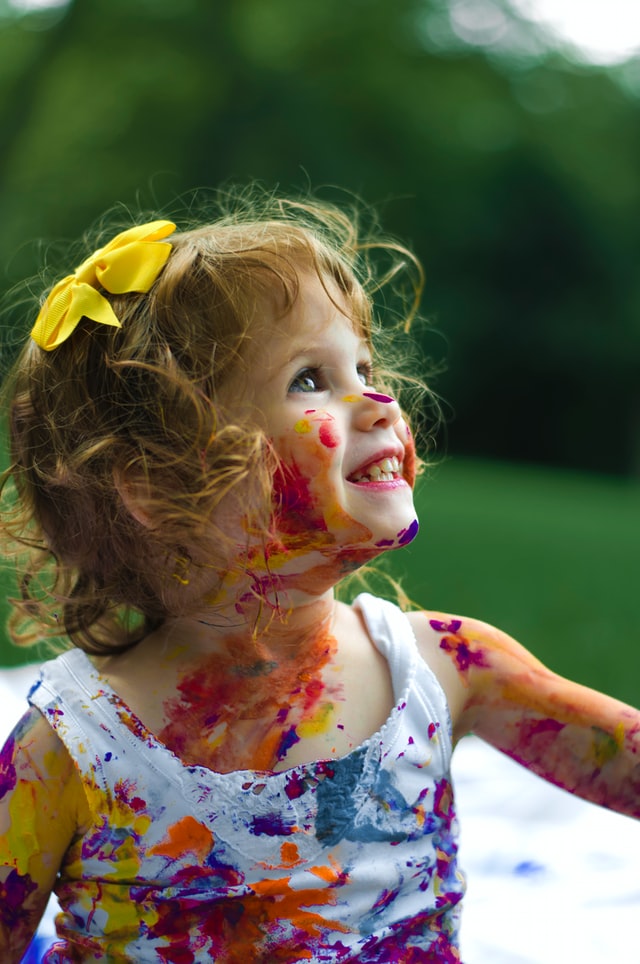
Milestones
Okay, now it’s time to get into some milestones. These widely accepted milestones are generated by the CDC and you can view their website here. They even have a checklist for these milestones so that you can feel confident your child is on track.
18 Months
I was looking through photo albums the other day and I realized that 18 months is, without a doubt, my absolute favorite age. Your kids are going to become little people, develop personalities, and someone still be the cutest in the entire world.
Social/Emotional
- Likes to hand things to others as play.
- Shows affection to familiar people.
- Plays simple pretend, such as feeding a doll.
- Points to show others something interesting.
- Explores alone but with a parent nearby.
Language/Communication
- Says several single words.
- Says and shakes head “no”.
- Points to show someone what they want.
Cognitive
- Points to one body part.
- Points to get the attention of others.
- Scribbles on their own.
- Can follow 1-step verbal commands without any gestures.
Physical
- Walks alone.
- Pulls toys while walking.
- Can help undress self.
- Eat with a spoon.
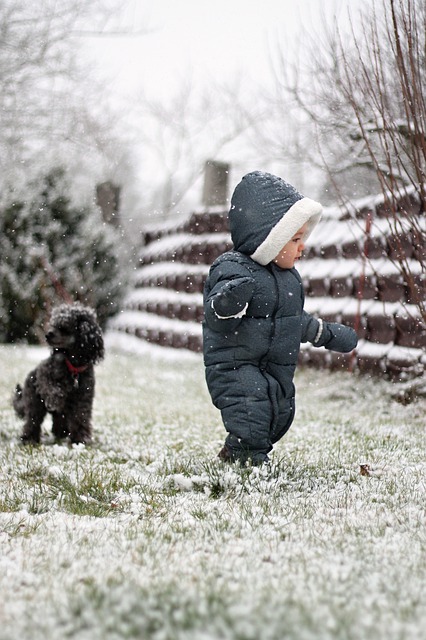
Development Tips
- Provide a safe, loving environment. It’s important to be consistent and predictable.
- Describe child’s emotions as you see them.
- Encourage pretend play.
- Copy your child’s words using clear, slow, and proper speech.
- Use simple, clear phrases.
- Ask simple questions.
- Name pictures in books and body parts.
- Provide toys that encourage pretend play such as dolls and telephones.
- Provide safe areas for your child to walk and move around in.
- Provide balls to kick, roll, and throw.
- Encourage them to drink from their cup and use a spoon.
2 Years
Your child really is moving away from the age of toddler. I call this age the twos because that’s the only way I can capture it. They are more mature and capable than a toddler, but not quite a preschooler yet.
Social/Emotional
- Copies others, especially adults and older children.
- Shows more and more independence.
- Plays mainly beside other children, but is beginning to include other children, such as in chase games.
Language/Communication
- Points to things or pictures when they are named.
- Knows names of familiar people and body parts.
- Says sentences with 2 to 4 words.
- Follows simple instructions. Points to things in a book.
Cognitive
- Finds things even when hidden under two or three covers.
- Begins to sort shapes and colors.
- Plays simple make-believe games.
- Builds towers of 4 or more blocks.
- Names items in a picture book.
Physical
- Stands on tiptoe
- Kicks a ball
- Begins to run
- Throws ball overhand.
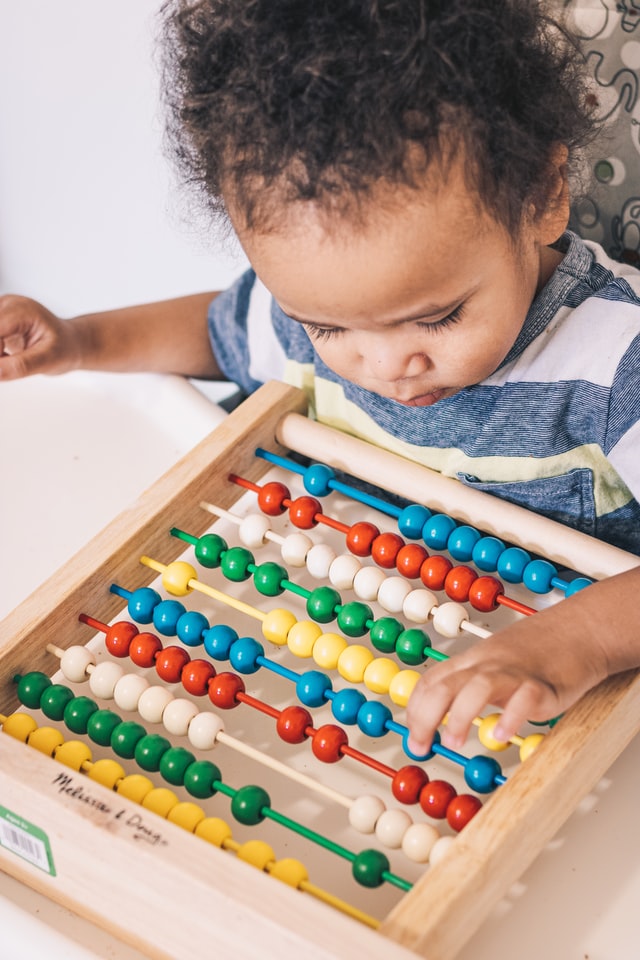
Development Tips
- Encourage your child to help with simple chores at home like sweeping and making dinner.
- Teach your child to identify and say body parts, animals, and other common things.
- Encourage your child to say a word instead of pointing.
- Hide your child’s toys around the room and let them find them.
- Help your child do puzzles with shapes, colors, or farm animals. Name each piece when your child puts it in place.
- Encourage your child to play with blocks. Take turns building towers and knocking them down.
- Do art projects with your child.
- Once your child walks well, ask them to carry things for you.
- Kick a ball back and forth with your child. Take your child to the park to run and climb on equipment.
3 Years
Your child is now officially a preschooler. The can walk, talk, and keep up with the big kids. I feel like socially speaking you see a big jump around this age. Children will start making their own friendships and seeking out preferred play mates.
Social/Emotional
- Copies adults and friends.
- Shows affection for friends without prompting.
- Takes turns in games.
- Dresses and undresses self.
- Understand the idea of “mine” and “his” or “hers”.
Language/Communication
- Follows instructions with 2 or 3 steps.
- Can name most familiar things.
- Says first name, age, and sex.
- Names a friend.
- Talks well enough fr strangers to understand most of the time.
- Carries on a conversation using 2 or 3 sentances.
Cognitive
- Can work toys with buttons, levers, and moving parts.
- Plays make-believe with dolls, animals, and people.
- Does puzzles with 3 or 4 pieces.
- Turns book pages one at a time.
- Builds towers of more than 6 blocks.
Physical
- Climbs well.
- Runs easily.
- Pedals a tricycle.
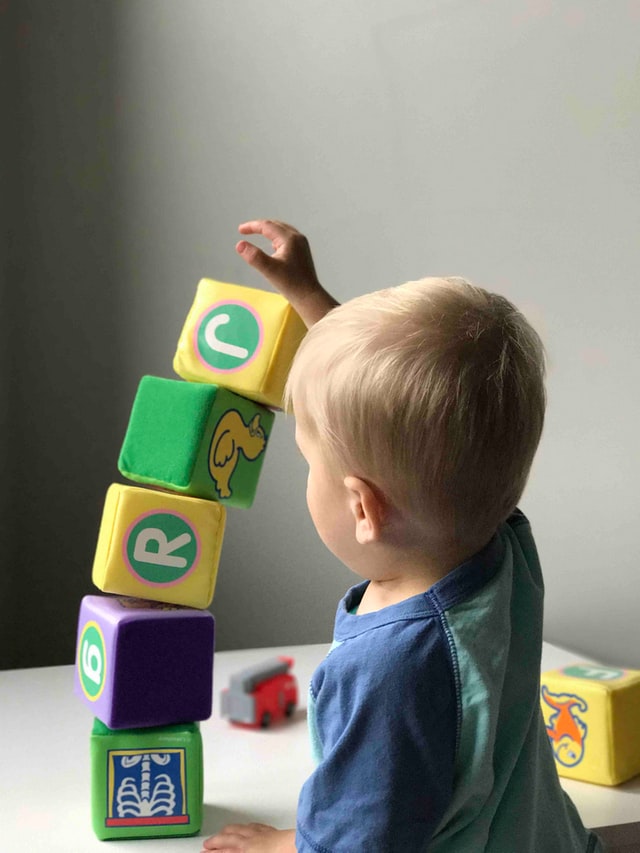
Development Tips
- Go to play groups with your child or places where there are other children.
- Work with your child to serve the problem when he is upset.
- Talk about your child’s emotions.
- Set rules and limits for your child, and stick to them.
- Give your child instructions with 2 or 3 steps.
- Read to your child every day.
- Play matching games.
- Play counting games.
- Play outside with your child.
4 Years
As I write this blog, my oldest is 4 years old. I find it fascinating to watch them as they really are exploding socially and cognitively.
Social/Emotional
- Is more creative with make-believe play.
- Cooperates with other children.
- Plays “Mom” or “Dad”.
- Talks about what they like and what they are interested in.
Language/Communication
- Tells stories.
- Sings a song or says a poem from memory.
- Can say first and last name.
Cognitive
- Names some colors and some numbers.
- Understands the idea of counting.
- Starts to understand time.
- Draws a person with 2 to 4 body parts.
- Uses scissors.
- Starts to copy some capital letters.
- Plays board or card games.
Physical
- Hops and stands on one foot up to 2 seconds.
- Catches a bounced ball most of the time.
- Pours, cuts with supervision, and mashes own food.
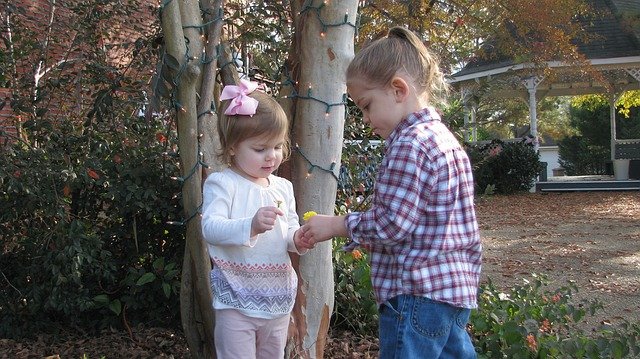
Development Tips
- Play make-believe with your child.
- Give your child simple choices whenever you can.
- During play dates, let your child solve their own problems with friends.
- Encourage your child to use words, share toys, and take turns playing games of one another’s choices.
- Use proper grammar with your child.
- Uses words like “first”, “second”, and “finally” when talking about everyday activities.
- Take time to answer your child’s “why” questions.
- When to read with your child, ask them to tell you what happened in the story as you go
- Say colors in books, pictures, and things at home.
- Count common items.
- Teach your child to play outdoor games like tag.
- Play your child’s favorite music and dance with them.
5 Years
This is the end of the Early Years. Your child is possibly going into kindergarten soon. At the end of this year your child will transition into the next major stage of their life. So let’s make sure it’s a good year!
Social/Emotional
- More likely to agree with rules.
- Likes to sing, dance, and act.
- Is aware of gender.
- Can tell what’s real and what’s make-believe.
- Shows more independence.
Language/Communication
- Speaks very clearly.
- Tells a simple story using full sentences.
- Uses future tense.
- says name and address.
Cognitive
- Counts 10 or more things.
- Can draw a person with at least 6 body parts.
- Copies shapes.
- Can print some letters or numbers.
Physical
- Stands on one foot for 10 seconds or longer.
- Hops.
- Can do a somersault.
- Use a fork and spoon.
- Can use toilet on own.
- Swings and climbs.
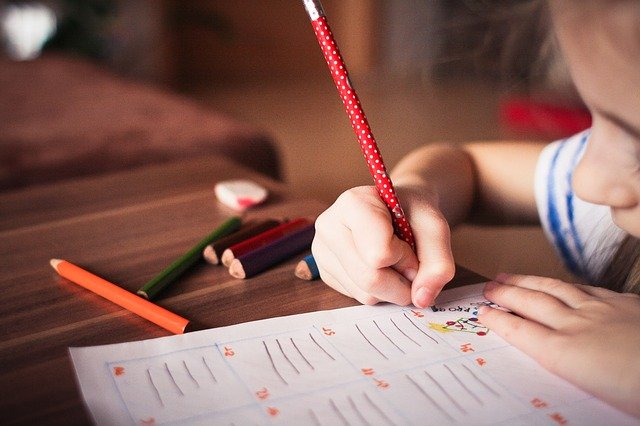
Development Tips
- Continue to arrange interactions with other children.
- If you haven’t already, start talking to your child about safe touch.
- Teach your child their address and phone number.
- When reading with your child, ask them to predict what will happen next in the story.
- Encourage your child to “read” by looking at the pictures and telling the story.
- Teach your child time concepts like morning, afternoon, evening, today, and so on.
- Explore your child’s interests in your community.
- Keep art supplies accessible to your child.
- Play with toys that encourage your child to put things together.
- Teach your child how to pump their legs back and forth on a swing.
- Help your child climb on the monkey bars.
- Go on walks with your child.
